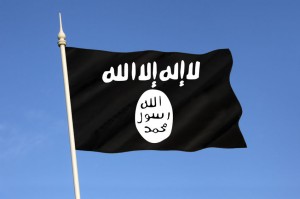On Perverts and Terrorists: The Semantics of ISIS

A rose by any other name would smell as sweet. But is ISIS, ISIL, IS, SIC, or Da’ish as Islamic?
At the February 18 White House Summit on Countering Violent Extremism, President Barack Obama cut a clear demarcation between ISIS, the extremist terrorist group, and Islam:
Al Qaeda and ISIL and groups like it are desperate for legitimacy. They try to portray themselves as religious leaders—holy warriors in defense of Islam. That’s why ISIL presumes to declare itself the “Islamic State.” And they propagate the notion that America—and the West, generally—is at war with Islam. That’s how they recruit. That’s how they try to radicalize young people. We must never accept the premise that they put forward, because it is a lie. Nor should we grant these terrorists the religious legitimacy that they seek. They are not religious leaders—they’re terrorists. And we are not at war with Islam. We are at war with people who have perverted Islam (emphasis mine).
Obama also claimed that ISIS is not Islamic because they selectively interpret religious texts:
Al Qaeda and ISIL do draw, selectively, from the Islamic texts. They do depend upon the misperception around the world that they speak in some fashion for people of the Muslim faith, that Islam is somehow inherently violent, that there is some sort of clash of civilizations.
Of course, the terrorists do not speak for over a billion Muslims who reject their hateful ideology. They no more represent Islam than any madman who kills innocents in the name of God represents Christianity or Judaism or Buddhism or Hinduism. No religion is responsible for terrorism. People are responsible for violence and terrorism (emphasis mine).
Many liberals are showing solidarity with Obama’s statement. The Daily Show’s Jon Stewart showed approval for this stance by facetiously scolding the president for communicating too reasonably with Americans, anticipating the reaction of conservatives and the religious right: “Six and a half years into his presidency, and this man still thinks that he can persuade us through reasoned argument. I mean—have you met us?”
Speaking at the Conservative Political Action Conference (CPAC), Sarah Palin’s reaction was: “Stop blaming the victim and wake up, Mr. President. Christians bow our heads to pray for you, radical Islamists want to cut off your head.”
Obama’s delineation of arbitrary borders between what is “real” Islam, what others contend is a religion of peace, and the supposedly incorrect, out-of-context Islam that terrorist groups like ISIS practice is necessary to avoid alienating Muslim Americans who practice Islam nonviolently. It may also help prod the relatively “less” radical Muslims, who may still be fans of Sharia law but not supporters of death to apostates, to denounce ISIS and join in support with the West. This was succinctly stated by Eli Lake of Bloomberg View: “The long war against radical Islamic terrorists requires at least the tacit support of many radical Muslims.”
But beyond political and strategic motivations, who gets to decide which sect’s interpretation of Islam “perverts” Islam and which sect’s doesn’t? Politically, yes, the Islamic State is not recognized by world governing bodies like the UN. But religiously, ISIS may be closer to the original interpretation of Islam than the pacifist forms that exist today. As argued by Graeme Wood in a careful analysis of ISIS for The Atlantic:
[M]uch of what the group does looks nonsensical except in light of a sincere, carefully considered commitment to returning civilization to a seventh-century legal environment, and ultimately to bringing about the apocalypse. The most-articulate spokesmen for that position are the Islamic State’s officials and supporters themselves. They refer derisively to “moderns.” In conversation, they insist that they will not—cannot—waver from governing precepts that were embedded in Islam by the Prophet Muhammad and his earliest followers. They often speak in codes and allusions that sound odd or old-fashioned to non-Muslims, but refer to specific traditions and texts of early Islam.
In fact, the strategic aspect is negated and unwise if it extends beyond rhetoric; if we do not truly understand ISIS’s deep loyalty to their mission as based in the teachings of Islam, then we are depriving ourselves of military and defense strategies that target and paralyze the key drivers of their actions. In Wood’s words, “We’ll need to get acquainted with the Islamic State’s intellectual genealogy if we are to react in a way that will not strengthen it, but instead help it self-immolate in its own excessive zeal.”
Of course, people intolerant of intolerance will quickly jump on board with Obama’s statement on semantics. I myself found it very attractive when I first heard it, but there is truth to the stereotype that liberals and progressives see the world through rose-colored glasses, and, in this case, delegitimizing their passionate practice of Islam too easily extends to saying they don’t see themselves as Muslims fighting in the name of Islam.
And most importantly, if we want to hold people responsible for violence and terrorism, instead of holding religion responsible, we must consider this question: Which part of religion was not created by people? Of course, this is the greatest dispute of all, even though all of the interpretations and all the holy texts were created by humankind. If deities spoke through humans, or to humans, they have not written anything down for us in clear, simple, immortal, and omniscient language.
So just because we don’t call them Islamic doesn’t mean they’re not.
What are your thoughts on the topic? Answer our poll and share your opinions in the comments section below.
